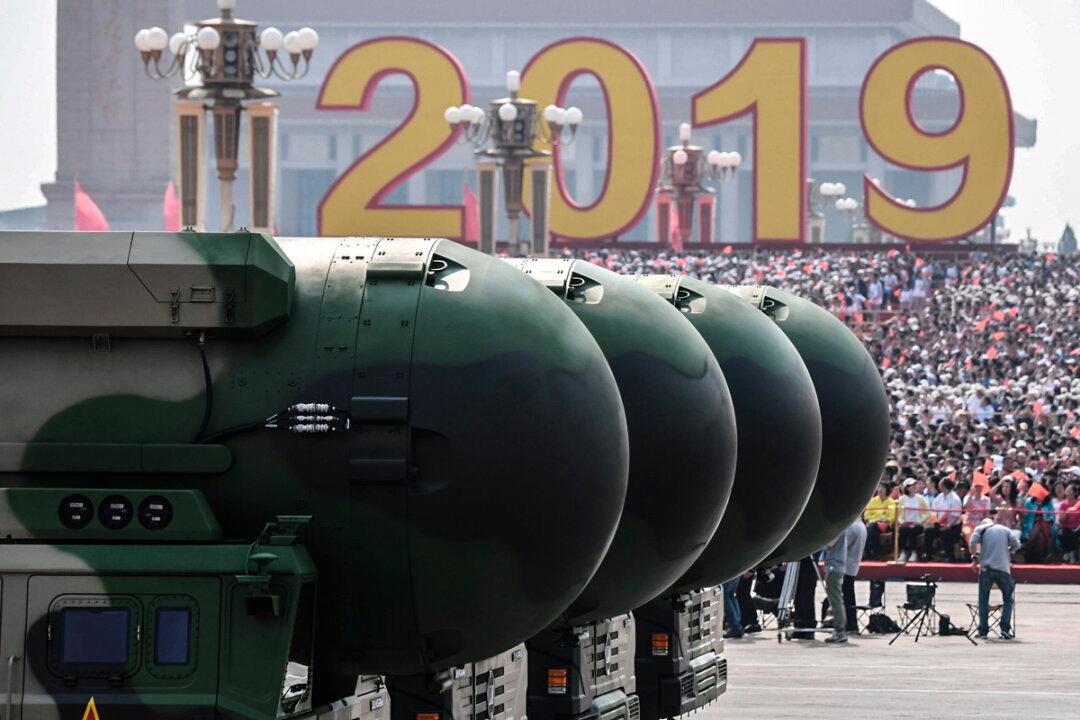The Taiwanese Defense Ministry reported on Sept. 29 that the Chinese military is launching “multiple waves” of missiles inland in China, following the Chinese Rocket Force’s first test-fire of an intercontinental ballistic missile (ICBM) since 1980, just days ago.
Beginning at about 6:50 a.m. local time, the waves of missiles were fired in Inner Mongolia, Gansu, Qinghai, and Xinjiang, about 1,200 miles from Taiwan.





